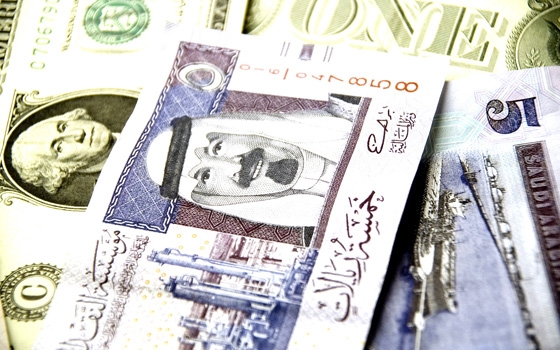Saudi Arabia's 2015 state budget is expected to raise spending marginally from this year's original plan while covering a deficit due to sliding oil prices with the kingdom's huge fiscal reserves, a Saudi newspaper reported.
Quoting unnamed sources, the Al Madina newspaper said government spending was expected to be about SR860 billion ($229 billion), up from a record SR855 billion in the 2014 budget plan.
Projected 2015 revenues would drop to SR715 billion from SR855 billion in the 2014 plan, leaving a deficit of SR145 billion.
Saudi Arabia will continue spending actively on major strategic projects such as housing, transport and the construction of industrial cities, the newspaper said.
The budget, which is expected to be announced later this week after a special cabinet meeting, is eagerly awaited by financial markets because it will be the first detailed look at how Saudi Arabia intends to handle the economic impact of this year's oil price plunge.
Finance Minister Ibrahim Alassaf said last week that his government would continue spending strongly on development projects and social benefits in the 2015 budget, but he did not give details.
If the figures in the Al Madina report are correct, they suggest Saudi authorities are confident of their ability to ride out a period of low oil prices and see no need to slash spending or impose harsh austerity policies.
Some analysts believe Riyadh is content to see oil prices fall as a way to squeeze out competing producers in non-Opec nations; the reported budget figures imply it could pursue this strategy for years if it feels that is necessary.
A 145 billion riyal budget deficit, the kingdom's first since the global financial crisis in 2009, would be about 4.8 percent of Saudi Arabia's projected gross domestic product next year, according to estimates by the International Monetary Fund.
Government reserves at the central bank totalled 905 billion riyals at the end of October, enough to cover such a deficit for about six years. That excludes the government's other assets and its ability to borrow.
The newspaper report did not specify the average oil price on which the budget projections were based. Brent crude has slumped to just above $60 a barrel from around $115 in June.
Reuters
23 December






















































